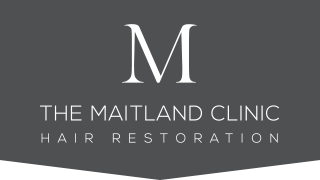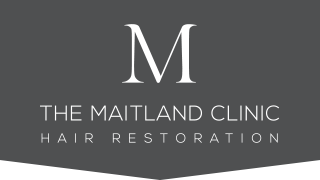Hair loss tablets and medication
Hair loss can be a distressing condition, affecting not just your appearance, but also your confidence and wellbeing. Fortunately, advancements in medical science have led to the development of several high-quality treatment options.
For those people in the early stages of hair loss, medication can be an effective way of slowing down – or even reversing – the hair loss process. A wide variety of medications exist and can be used alone or in conjunction with surgery to help optimise results.
At The Maitland Clinic, we offer various key hair loss medication options: minoxidil, finasteride, combined topical minoxidil and finasteride, and dutasteride.
Minoxidil
Minoxidil is a form of hair loss medication that helps to promote hair regrowth and strengthen existing hairs. The medication works to:
- improve blood flow to hair follicles, helping to increase oxygen and nutrient supply
- extend the growth phase of hair follicles
- reverse or stop the thinning (known as ‘miniaturisation’) of hair follicles.
In this sense, minoxidil creates a more suitable environment for hair growth to occur, where follicles are encouraged to grow thicker and healthier.
Who is minoxidil suitable for?
As minoxidil works by promoting the growth of existing hair follicles, it’s not suitable for individuals with a total hair loss, or sudden or patchy loss. However, minoxidil can be very effective for individuals with androgenetic alopecia (known as male and female pattern baldness). Minoxidil has also been used off-label for many other types of hair loss, including alopecia areata, traction alopecia, scarring alopecias and chemotherapy induced alopecia.
What form does minoxidil come in?
Minoxidil can come in a topical form which is applied on the skin as a scalp solution or foam.
Minoxidil is also available in oral form. Traditionally, oral minoxidil was a treatment used to decrease blood pressure, but it was found to have a side effect of increased hair growth. This led to oral minoxidil being recognised as a potential treatment for hair loss. It offers an alternative medication for when topical minoxidil is ineffective or causes adverse effects. However, oral minoxidil is not suitable for everyone, such as people with certain heart or health conditions, and those who are trying to conceive, are pregnant or breastfeeding.
This means that oral minoxidil is only available with a prescription and requires regular supervision by a professional.
Is minoxidil effective?
Topical minoxidil is well established as an effective hair loss medication, with a range of research showing it successfully and safely improves hair growth in a wide variety of hair loss conditions. For instance, one review of topical minoxidil found the drug improved hair growth from 17% to 70% in people with androgenetic alopecia – the most common hair loss condition.
Oral minoxidil has also shown to be a successful and well-tolerated hair loss tablet. A review of oral minoxidil found the medication offered clinical improvements such as decreased shedding, increased hair length, and improved hair density. The hair loss medication is also effective in both men and women, with men requiring higher doses than women for maximum efficacy.
Finasteride
Finasteride is a hair loss medication that blocks the conversion of the hormone testosterone to dihydrotestosterone (DHT). DHT plays a vital role in hair loss by shrinking hair follicles, so inhibiting this can help to stabilise loss and may even thicken hair.
Finasteride can come in a topical form (such a scalp solution or foam) or an oral form.
Who is finasteride suitable for?
DHT is a male sex hormone that stems from testosterone. Typically, finasteride is recommended for men experiencing thinning hair and hair loss in the mid-scalp area and the crown (the middle and back of the head). However, finasteride can also help treat hairline recession and frontal scalp thinning.
Finasteride is not recommended as a hair loss treatment for premenopausal women. This is because of its potential for teratogenic side effects (meaning it may cause the abnormal development of a baby if a woman becomes pregnant). Some evidence is starting to show that finasteride may be a safe and effective treatment for postmenopausal women with hair loss. However, more research is needed to confirm whether any form of finasteride is safe for women.
Is finasteride effective?
Many studies have established that finasteride can significantly improve total hair count, slow hair loss, and improve overall appearance of the hair. What’s more, these results are long-lasting, with studies showing that over 90% of men either maintained or sustained visible improvements in hair loss five years post-treatment.
There’s not enough research to establish whether oral or topical finasteride is most effective, and individual factors can also influence how suitable each form is. However, some clinical trials suggest oral finasteride can have more of an impact on DHT levels than the topical version.
Patient results after 3 months of Propecia (oral finasteride) use (full set of photos can be seen here).
Combined finasteride and topical minoxidil
Combining hair loss medication may lead to greater results than using the medications alone. For instance, a regime of finasteride hair loss tablets combined with topical minoxidil has demonstrated significant improvements in hair density compared to using just one of the medications.
Minoxidil and finasteride work in two different ways. Minoxidil improves circulation to the scalp and promotes a growth environment for hair follicles, whereas finasteride blocks the conversion of testosterone to DHT – the hormone involved in hair loss. Although more research is needed to establish the most effective combination and dosage, combining these two mechanisms could lead to a powerful hair loss treatment.
Dutasteride
Dutasteride, like finasteride, is a hair loss medication that also works by blocking the production of DHT. Although this medication won’t cure hair loss, it can stop or even reverse the negative impact of DHT on the hair.
Dutasteride can come in the form of a tablet or a scalp solution. Although it’s not as commonly used as finasteride, dutasteride is highly effective. Some evidence shows that the hair loss pill is more effective in increasing total hair count and reducing hair loss compared to finasteride.
Choosing the right medication for you
The most effective and safe medication for you will depend on a range of individual factors, including your hair loss condition, genetics, and gender.
At The Maitland Clinic, our extensive and holistic consultation service helps us establish what medication might be most suitable for you. We also offer the Fagron TrichoTest: a quick and simple genetic test that helps identify the right hair loss medication for you. By taking this in-depth approach, we can help you find the right hair loss pill or medication that suits your needs and develop a personalised treatment plan.
Some hair loss medications are available over the counter, whereas others need a prescription. At The Maitland Clinic, Dr Ball is able to prescribe hair loss medication. This means patients can get their prescription directly from us, enabling us to offer a comprehensive hair loss service.
Taking this approach means we are able to safely guide patients on their specific medication. For instance, we provide in-depth information about the side effects and effectiveness of your unique medication and dose, helping to keep you fully informed throughout treatment. The ability to prescribe medication means we can also offer ongoing management, adjusting your treatment regime according to your response to treatment and any latest research. Working in this way allows us to maximise the effectiveness of your treatment and minimise any potential adverse effects.
Hair loss treatment at The Maitland Clinic
Whether you’re looking to learn more about hair loss treatment or start your journey to finding the right treatment for you, our highly knowledgeable and experienced team is here to help.
To explore your options and get on the path to better hair, get in touch with us today by completing our enquiry form or calling us on 02392 706122.
Contact us
* Required fields











